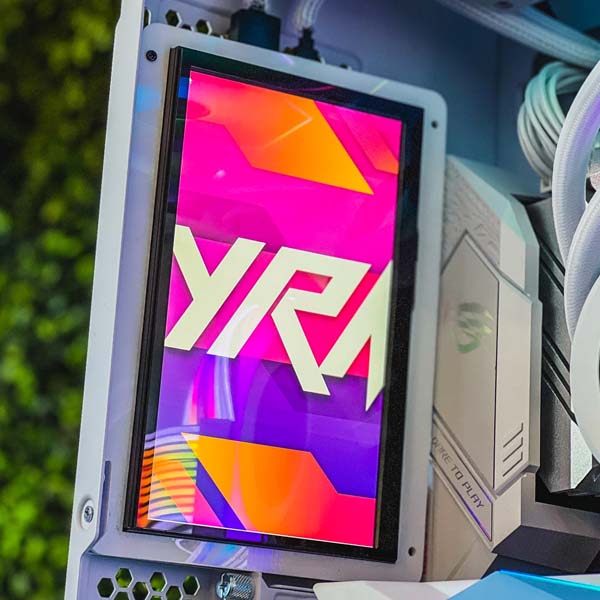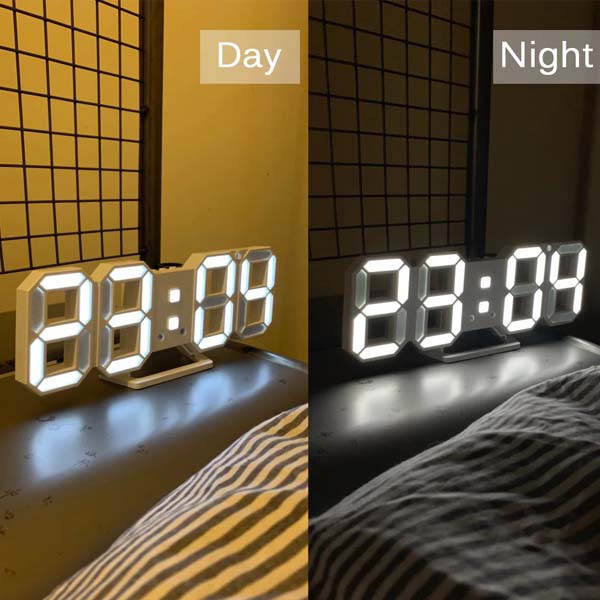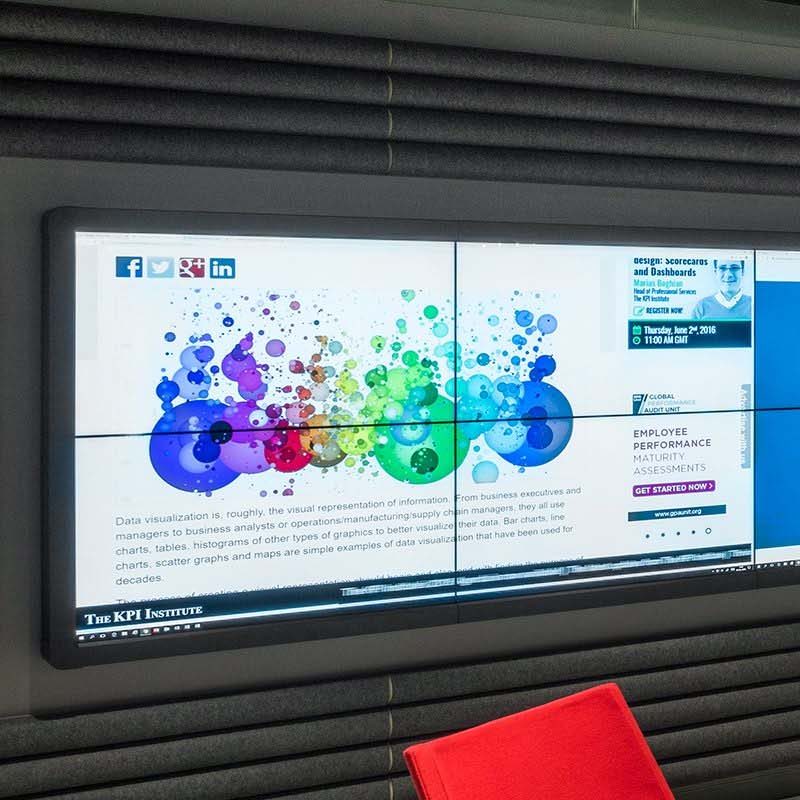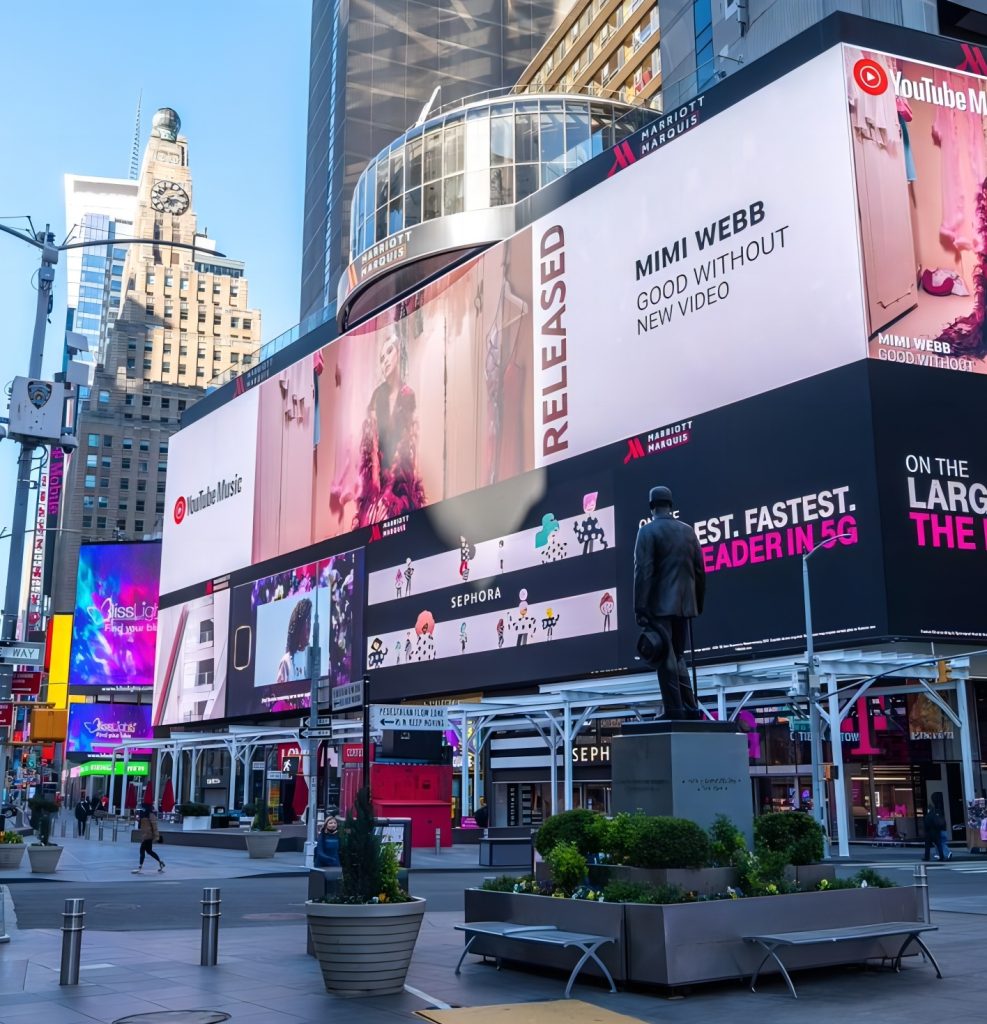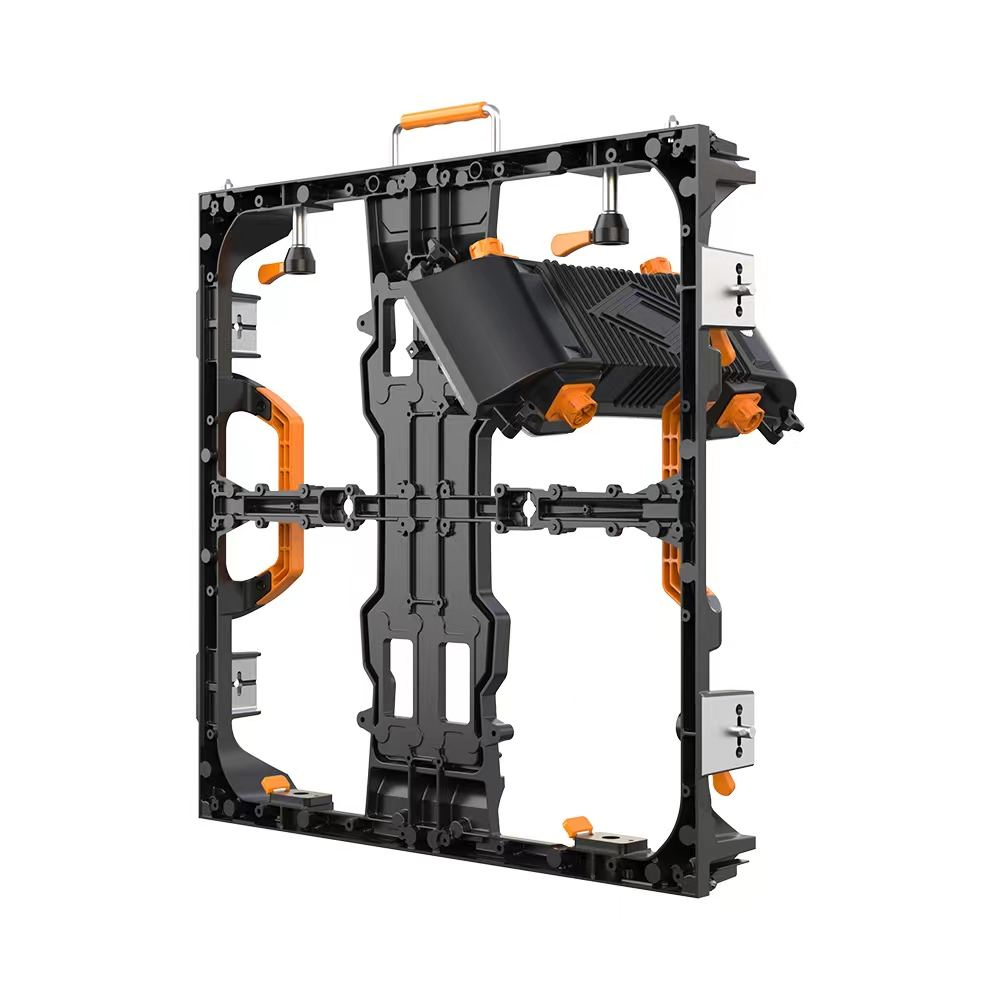Modern architecture seeks openness, natural light, and aesthetic purity. In this context, traditional screens often feel bulky or intrusive. Enter the Transparent LED Display—a revolutionary medium that overlays digital content onto glass façades, windows, and open structures without compromising transparency or visual flow.
From luxury boutiques to corporate headquarters and landmark towers, transparent LED screens are enabling digital storytelling while preserving the physical beauty of space.
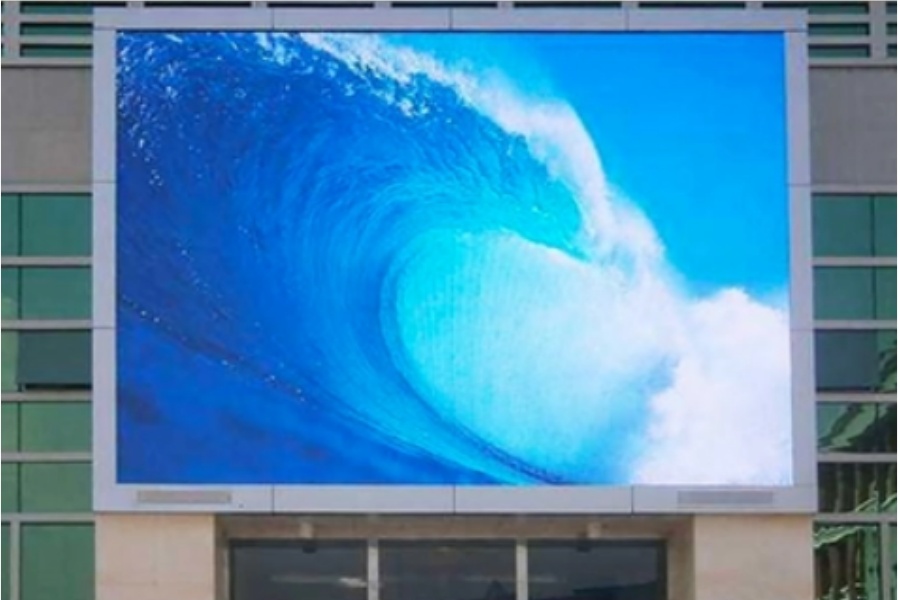
What Is a Transparent LED Display?
A Transparent LED Display uses thin LED light bars arranged on a transparent substrate or mesh to deliver visual content while allowing ambient light and background visibility.
Key characteristics include:
· Transparency rate: 40–90% depending on pixel pitch and LED structure
· Ultra-slim profiles: 10–30mm thick
· Lightweight modules for suspended or glass-mounted installation
· High brightness (≥3000–7000 nits) for daylight visibility
These displays are typically installed behind glass curtain walls, within window frames, or as standalone transparent panels.
Top Use Cases: When Transparency Meets Function
1. Luxury Retail Windows
Display promotions, brand stories, or dynamic visuals while allowing full interior visibility—preserving the shopper’s view of real products while enhancing curiosity.
2. Corporate Lobbies and Skyscraper Façades
Use transparent displays to show welcome messages, stock tickers, weather updates, or branding—all without altering the sleek look of glass architecture.
3. Airports and Transportation Terminals
Transparent screens can deliver flight info, ads, or emergency messaging while blending into glass railings, escalators, or atrium walls.
4. Museums, Galleries & Scenic Buildings
Use transparent displays on structural windows to overlay stories or digital guides—keeping the view intact while adding interpretive layers.
5. Green Buildings and Sustainable Architecture
Because they don’t block sunlight, transparent LEDs help retain daylight efficiency, reduce reliance on artificial lighting, and support LEED/sustainability goals.
Case Study: KSSDISPLAY + Shenzhen Innovation Tower
In 2022, KSSDISPLAY installed a 200m² transparent LED display on the 30-story Innovation Tower glass atrium.
Key Specs:
· Transparency rate: 68%
· Pixel pitch: P6.25 x P10
· Brightness: 5500 nits
· CMS-integrated content updated daily from cloud
· Structural integration with façade contractor
Results:
· Building won “Best Visual Technology Integration” at the China Real Estate Expo
· Commercial leasing for lower floors increased by 22% after installation
· System achieved 99.9% uptime during year-round operation
Technical Essentials to Consider
| Feature | Recommended Value |
| Transparency | ≥60% for window-facing installs |
| Brightness | ≥3500 nits for direct sunlight zones |
| Pixel Pitch | P3.9–P10 (adjust per distance) |
| IP Rating | IP30–IP54 (indoor/semi-outdoor use) |
| Module Size | Customizable (standard: 500x1000mm or 1000x1000mm) |
| Installation Type | Frame mount / hanging / embedded glass frame |
Why KSSDISPLAY?
KSSDISPLAY has deep expertise in transparent LED engineering, with deployments across Asia-Pacific’s most complex architectural projects. We offer:
· Custom module design to match façade engineering
· Glass integration consultancy (wind load, vibration, ventilation)
· High-contrast transparent LED with color calibration
· Smart CMS for remote management and ad scheduling
Our systems are used by:
· Airports in Singapore and Qatar
· High-end retail in Hong Kong, Tokyo, and Milan
· Tech parks and landmark towers in Dubai and Shanghai
The Future: Transparent LED Meets Interactivity
Next-gen transparent LEDs are evolving to include:
· Touch overlays for interactive shopfronts
· Facial detection for demographic targeting
· Light-responsive visuals that adapt to indoor/outdoor contrast
Combined with AI, sensors, and CMS, these displays become adaptive digital skins that respond to the environment and audience in real time.
Conclusion
Transparent LED Displays bring together technology and architecture—creating spaces that are both beautiful and communicative. They offer brands, designers, and developers a new way to inspire, inform, and innovate without visual clutter.
With KSSDISPLAY’s integrated design support, performance-tested modules, and global execution experience, you don’t have to choose between transparency and technology—you get both.

